Hardly anyone wants to settle for a dreadful cold shower, especially during winter. So when you run out of hot water or after you drain the water heater, the frequently asked question is, "How long will the water heater take to fill?
We've done some research, and here's what we've found out.
The time it takes for the water heater to fill up depends on tank size. A 40-gallon water tank will take approximately 20–30 minutes, while the 80-gallon tank will take 30–40 minutes to fill.
Continue reading if you want to learn about the standard recovery time and the things you can do in any event that your water heater doesn’t fill up.
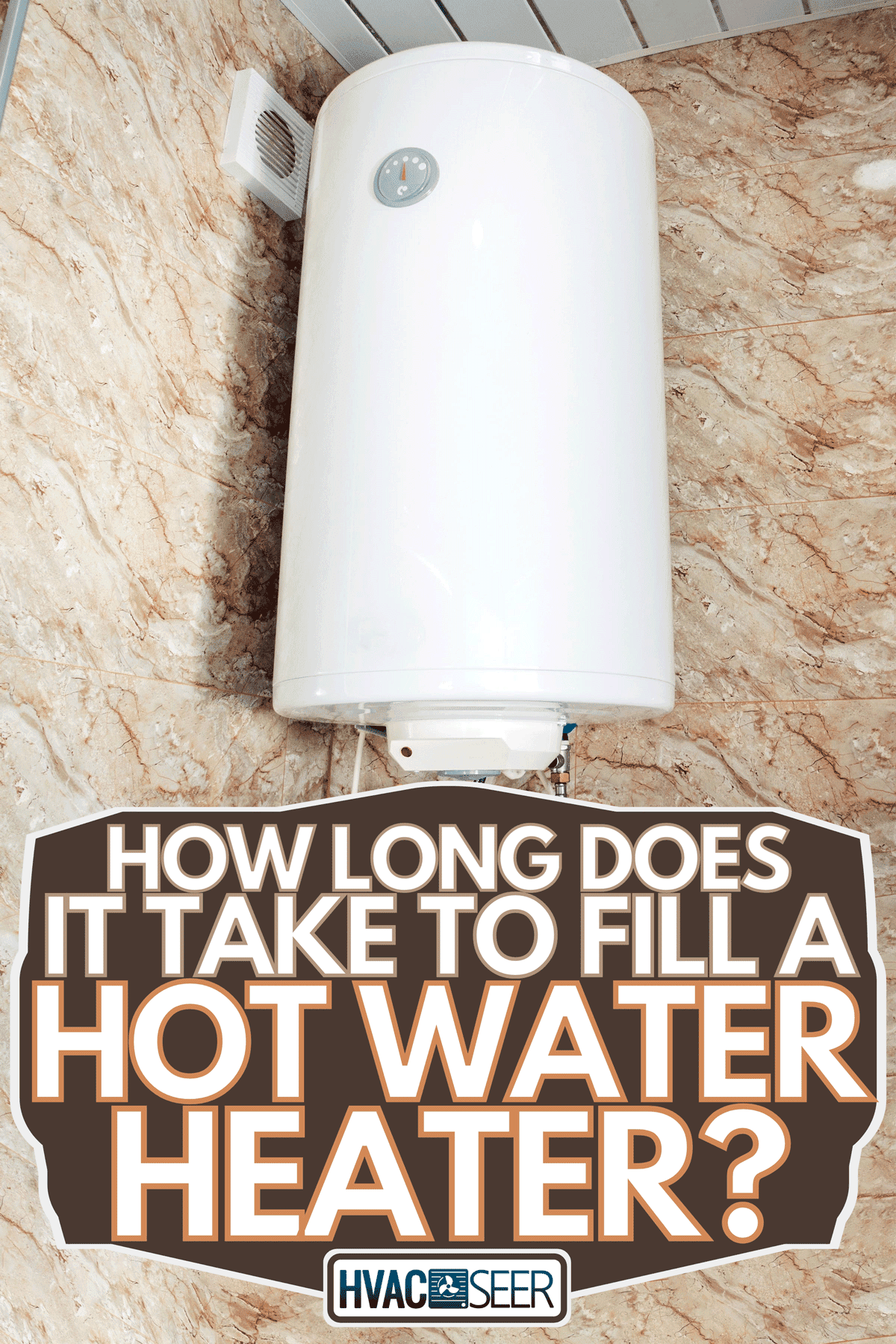
How Does A Water Heater Fill Up?
As the sink, shower, faucet, and other plumbing fixtures draw out the hot water, the water level drops. The water heater refills the tank automatically with cold water, then the cycle repeats.
Water Heater Takes Longer To Fill: What To Do?
A water heater that takes longer to fill than usual or does not fill up at all possibly has a problem with the leakage, airlock, and clogged pipes.
Below are the signs that your water heater tank is not filling:
- Water accumulation around your water tank
- Low hot water pressure
- A limited supply of hot water
- Whining or grinding noise in the equipment
How To Know When The Water Tank Is Full?
When there is no air coming out upon turning on the pressure valve, it indicates that the water heater is already full. Some systems also come with a feature that helps you determine the water level.
How Long Does It Take For Hot Water To Come Back?
Several factors can determine the water heater recovery time, including the following:
Tank Size
The larger water tank, the longer it takes for hot to become available.
| Tank Size | No. of People | Recovery Time |
| 30–40 gallons | 1–2 | 20–30 minutes |
| 50 gallons | 3–4 | 50 minutes |
| 60 gallons | 5 | 1 hour and 20 minutes |
| 70–80 gallons | 6+ | up to 2 hours |
First Hour Rating
This is the number of gallons or amount of water that your water heater can heat up within an hour. The lower the first-hour rating, the longer it takes to warm water, and vice-versa.
Difference In Temperature
This refers to the difference between the new water and your preferred temperature. The smaller the temperature difference, the shorter it takes for the hot water to be released.
Heater Type
Different types of heaters use different fuel, which also affects the recovery time.
Gas water heater uses a gas burner located at the bottom of the tank to warm water. Because gas heats up faster, it has the lowest recovery time, making it most efficient. It can warm an 80-gallon water tank in about an hour.
Electric water heaters take twice the time of a gas heater to heat up. It takes approximately two hours to heat up an 80-gallon water tank. The advantage is it uses less energy as the thermostat just ignites the heating system when the water temperature drops lower.
Tankless water heaters eliminate waiting time as they supply unlimited hot water in an instant, hence the most convenient. However, it mainly depends on electricity. So when the power goes out, there won’t be any hot water available since it’s tankless.
Click here to see this product on Amazon.
Heat pump water heaters are the upgraded versions of electric heaters. But despite the better setting, these have a relatively higher recovery time. You have to set them to an advanced setting to cut down the recovery time by 60–80 minutes, which can cause your electricity bill to soar high.
Solar water heaters are modern water heaters that require less expenditure, but the recovery time is longer than that of the electric water heater.
A 40-gallon tank takes an hour to heat up. Because this relies on sunlight to produce heat, it might not work when it is gloomy.
How Much Hot Water Can A Water Heater Provide Per Shower?
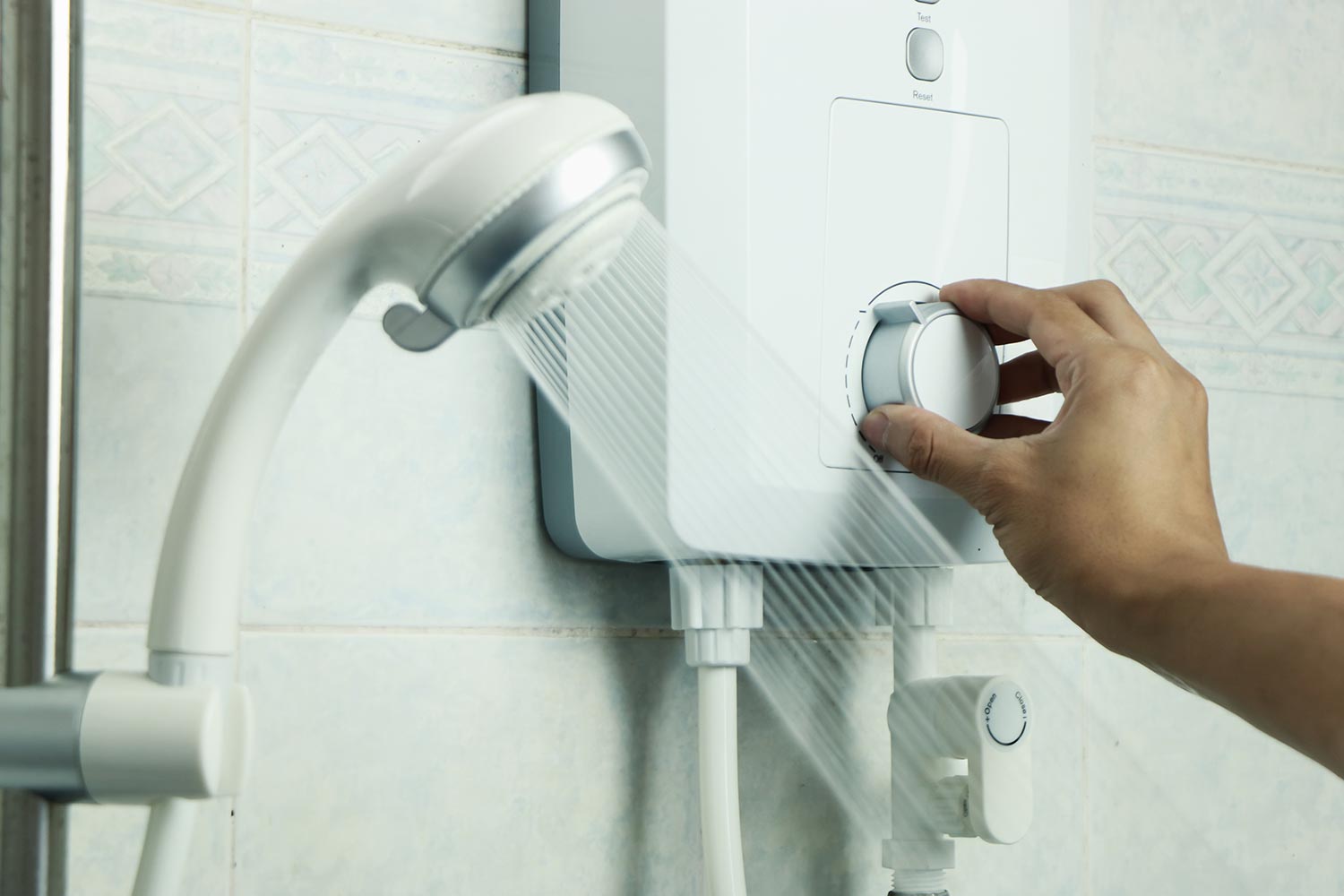
An average shower consumes at least 17.2 gallons of hot water. Suppose you have 50 gallons of water heater tankage and there are four of you in the house; your water heater can provide enough hot water for five 15–20-minute showers a day.
What If Your Warm Water Doesn’t Stay Hot That Long?
In most cases, this is a problem with the dip tube. This is the plastic inlet that guides the incoming water to the bottom of the tank for heating. Corrosive elements can cause it to break, allowing the cold water to get mixed up with the hot water.
Warm water naturally goes to the top, until it is drawn off by the discharge tube to provide water in the house.
With the dip tube broken, the cold water gets to the top where the hot water is instead of the bottom, resulting in lukewarm water.
Hot Water Runs Out So Fast: What To Do?
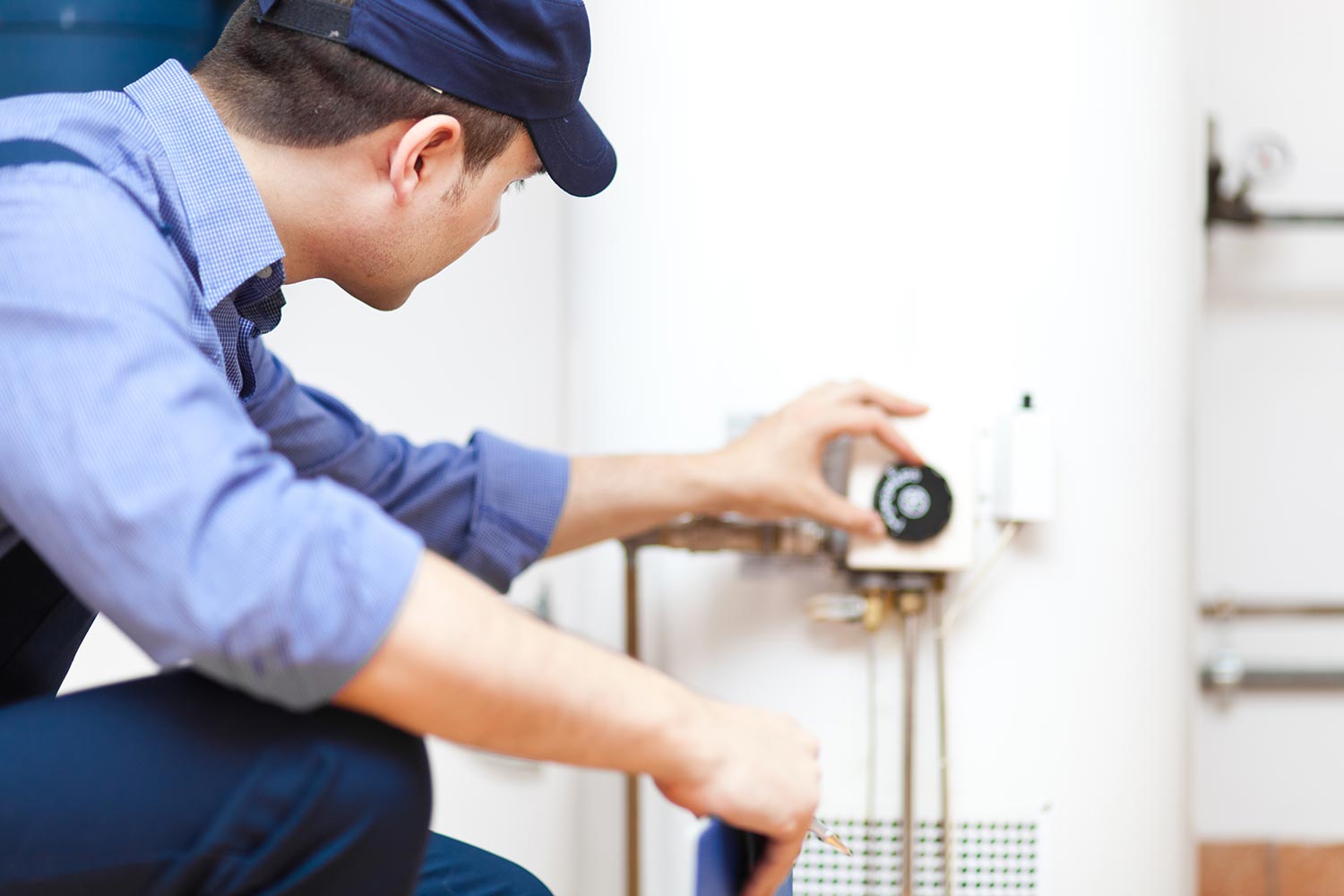
If your hot water runs out faster, it is time to inspect your water heater. This problem is usually caused by:
Mineral Or Sediment Build-Up
Incoming water often contains little amount of minerals, including calcium and magnesium, that precipitate and settle to the bottom of the tank. They can layer up and displace water, reducing the amount of water that becomes available for your home.
Sediments can tower over time and reach up to 15 gallons. So if you have 40-gallon water, you’ll just get 25 gallons of hot water.
Some signs of sediment build-up include a hissing sound in the pressure relief valve and noticeable sediments in hot water.
Draining a few buckets of water from the drain valve until there are no visible particles anymore usually solves the problem.
Broken Gas Valve
Old gas valves that have not been maintained properly can be prone to damage. When broken, it smells like rotten eggs due to gas leaks. This requires urgent professional attention.
Do not attempt to fix it yourself, as it can cause an explosion.
Faulty Lower Heating Elements
A water heater consists of two heating elements: lower and top. The lower heating element does most of the heating once the cold water enters the tank, while the top one is mainly for maintaining the hot water temperature.
If the lower heating element gets broken, your water temperature will drop significantly. This is commonly caused by sediment build-up or wiring shortage in the circuit board.
Call water heater services to have your device assessed properly.
Thermostat Problem
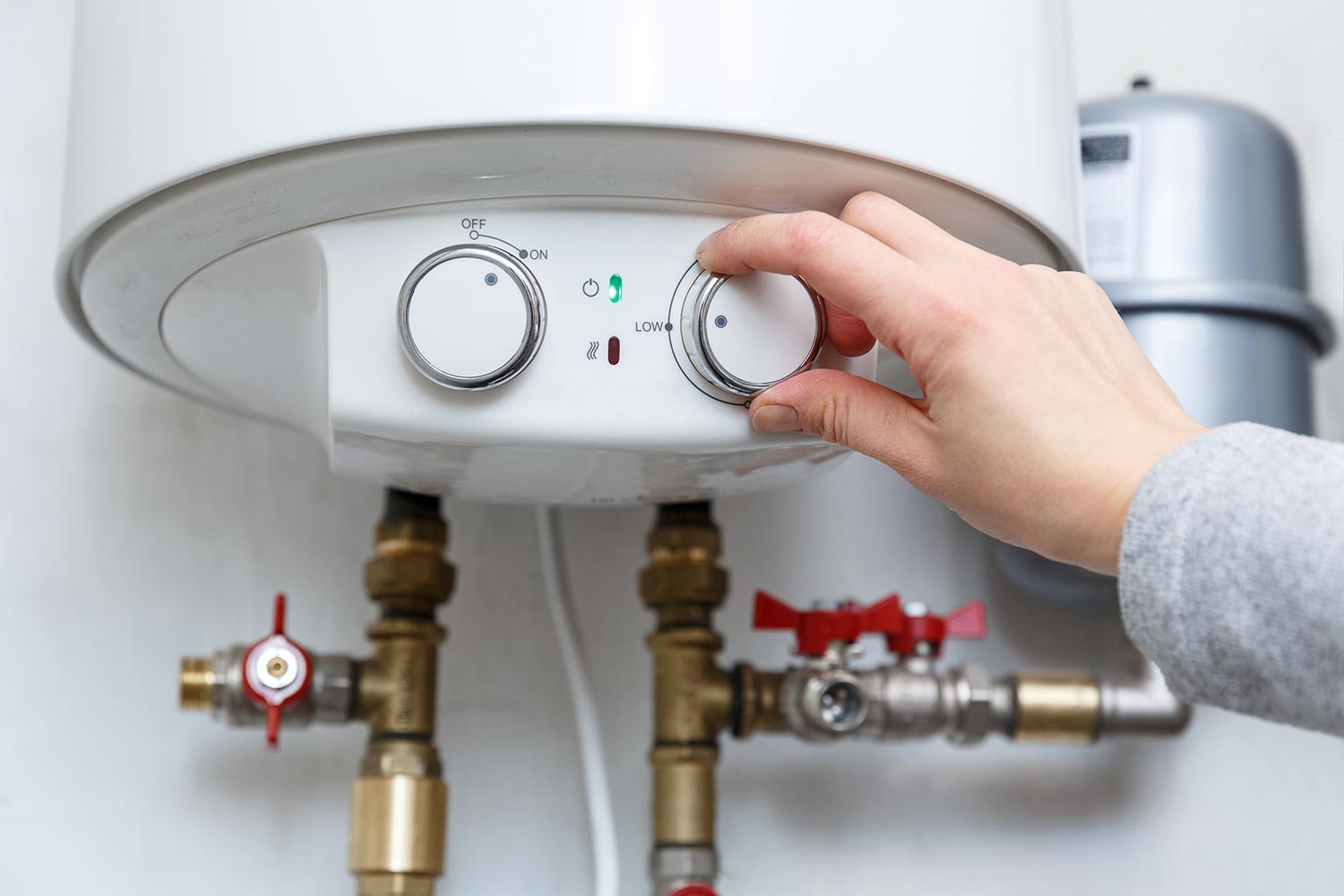
This is the part that ignites the heating system of the water heater when the temperature drops low. If the thermostat is not properly sensing temperature, the heating system won’t output enough heat to warm the water.
You can try to increase the temperature first. If it doesn’t work, try cleaning and resetting it.
Failing Water Heater
It could also be that your water heater is already worn-out and it needs to be replaced.
Here are the signs that your water needs to be replaced:
- The water heater is aged over a decade. Old water heaters hardly work adequately, hence poor performance.
- Rusty hot water or water discoloration. The hot water continues to come out sandy even though the pipes are not rusty.
- Unusual water heater noise, i.e., banging or rumbling sound despite the absence of sediments.
- Water leakage. Your water heater has visible fractures that cause constant water leaks.
- Water is not heating. You’re not getting hot water, but the electricity bill goes up.
What Is The Lifespan Of A Water Heater?
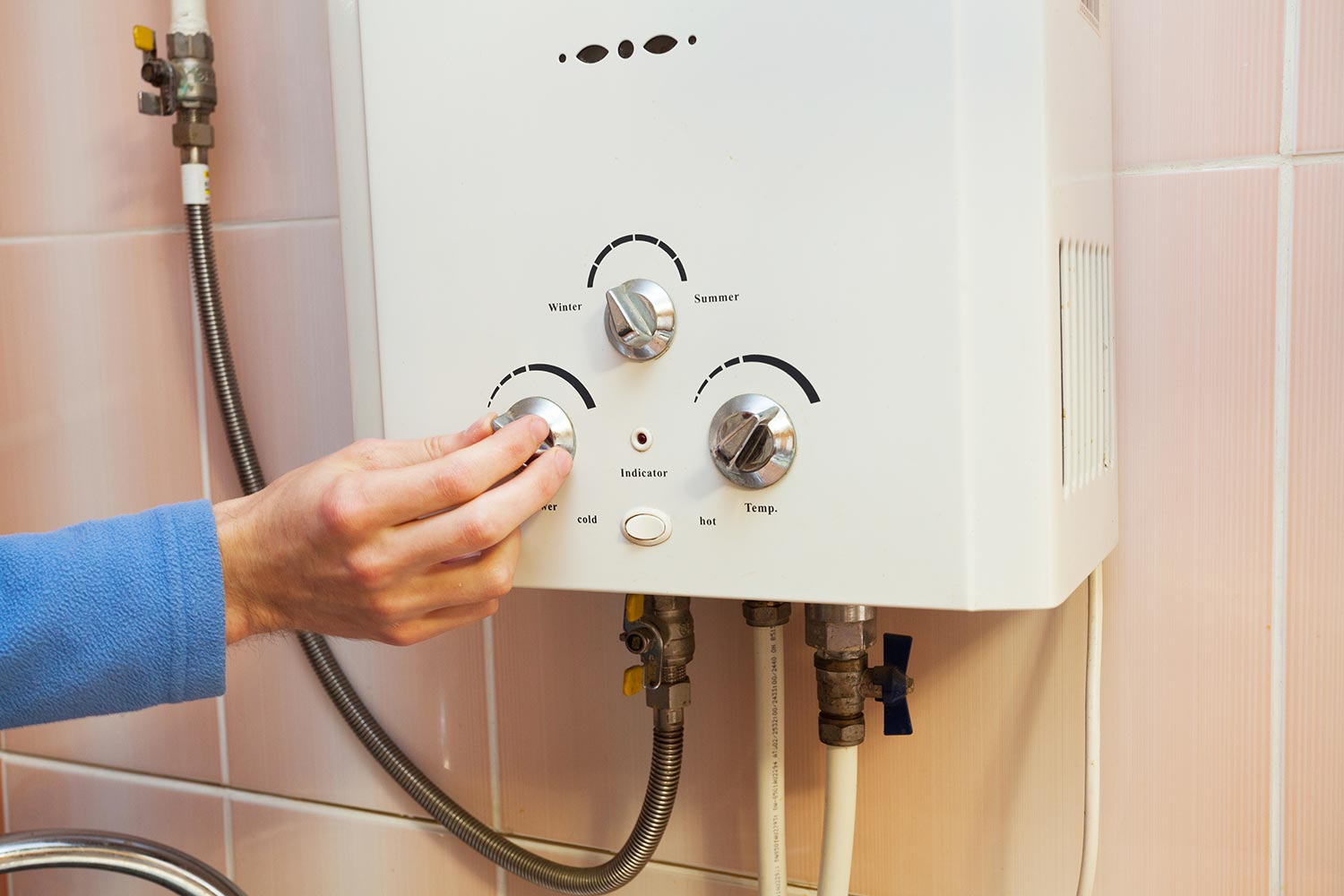
With proper maintenance, a water heater can last for up to 12 years. If your water heater is over 10 years old, it might be time to consider replacing it. If it’s tankless, it could last anywhere between 18 to 20 years.
In Closing
The time it takes for a water heater to fill up depends mainly on the size of the water tank. You would know that the water heater is full when there's no air coming out upon turning the pressure valve on.
If it takes longer to fill or is not filling up at all, check the factors we’ve mentioned earlier. Ask for the assistance of water heater services, if necessary.
If you like this article, you might also like to check out these other posts:

A 40-gallon unit can take 30 minutes, while an 80-gallon model needs a further 10 minutes.